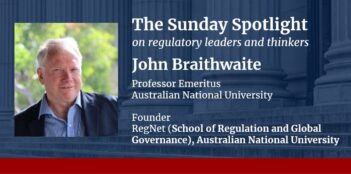
Triaging serious cases and simplifying criminal procedure could raise significant risks.
Professor Benjamin H. Barton and Judge Stephanos Bibas’s new book, Rebooting Justice, begins just where it ought to: namely, with a skip-the-rose-colored-glasses look at the status of using lawyers to represent low-income litigants in United States court systems.
Barton and Bibas demonstrate that in all classes of litigation—felonies, misdemeanors, and every type of civil lawsuit—low-income litigants lack reliable attorney representation that would meet anyone’s idea of a decent minimum. Barton and Bibas also demonstrate that this situation is unlikely to change in the foreseeable future. Indeed, as I read their first chapters, I was reminded of that day on the playground when a friend’s older sibling explained a critical fact about the tooth fairy.
Society’s effort to supply attorneys to broad sets of criminal defendants—as required by the U.S. Supreme Court decision in Gideon v. Wainwright—has been a failure. Legislatures refuse to appropriate sufficient funds for a decent minimum of representation. Courts refuse to enforce standards for a decent minimum of representation.
Worse still, because the purported obligation in Gideon applies to criminal cases, it represents a ceiling on what the legal system can accomplish on the civil side because many people—including Barton and Bibas—believe that, if the public should fund lawyers for low-income individuals at all, it should focus that funding on criminal defendants.
There is more to admire in Rebooting Justice than realism. Even as they provide valuable contributions, previous access-to-justice scholars, as well as lawyers in practice, have focused on either the civil justice system or the criminal justice system. But Barton and Bibas take a holistic look at the role of traditional attorney representation on both sides of the house.
They have a penchant for story-telling that they deploy to great effect. They have done their homework, relying on prior work proposing a variety of measures that allegedly promote access to justice: deregulation of the legal profession, greater use of technology, and reliance on self-help and self-representation. They also canvas and assimilate the empirical literature relevant to their argument, reporting the results of the studies they cite accurately, even when those results do not align with their principal proposal.
That proposal takes the form of what Barton and Bibas call a “grand bargain” that turns out to have two primary pillars.
First, divert public and philanthropic funding for lawyers for low-income individuals from the civil legal system, and from the defense of certain lower-level criminal cases, into the defense of more serious criminal cases. Second, for cases in the former, allegedly less serious category, simplify the applicable adjudicatory procedures by using, for example, inquisitorial judging, alternative dispute resolution (preferably conducted online), and discovery limited by the amount in controversy.
Barton and Bibas justify their grand bargain on triage grounds, arguing for triage by category—as opposed to by individual case—so as to promote administrability.
The structure of their reasoning is straightforward: If supply of some good is scarce relative to the need for it, and if increasing the supply of the good is unlikely, then, first, apply the good to some favored subset of instances in which it might be used, and, second, take steps to reduce the need. Here, the good is traditional attorney-client relationships, the preferred subset is a class of criminal cases, and the steps to reduce the need are Barton and Bibas’s procedural simplification proposals.
With an understanding that Barton and Bibas’s grand bargain is a triage problem, questions emerge.
For example, there are lots of ways to triage. Researchers and practitioners have long studied how to distribute scarce medical resources, with transplantable organs constituting one gut-wrenching example. This research on health care has shown that there are many ways to identify a favored set of cases for a scarce good. One can provide the good to those whose situation is the most dire, or to those who would benefit the most from it, or to those who are considered most deserving on some scale, or to those who come first, or to those chosen by a coin toss.
For Barton and Bibas, the favored class of legal cases comprises “felonies, misdemeanors punishable by six months’ imprisonment or more, or misdemeanors carrying major collateral consequences.” What justifies that choice? For Barton and Bibas, it is the fact that these cases involve the possibility of lengthy incarceration.
But why does that fact justify their choice? One argument might be that the situation of this class of defendants is the most dire because lengthy incarceration—and death—is the worst that the legal system can do to a litigant. If so, then the argument is structurally the same as giving transplantable organs primarily to patients on death’s door.
One potential objection to this kind of triage based on the most dire situation is that the scarce good may go to people or cases that derive little benefit from it. A patient on death’s door might die soon, with or without a new organ. A serious misdemeanor or felony defendant might be convicted of the same crimes and face the same or a similar sentence, with or without traditional attorney representation.
Alternatively, Barton and Bibas might be arguing that more is at stake when the crimes charged are serious (when patients are sickest), so it must therefore be true that lawyers (transplantable organs) can do the most good in those cases (for those patients). If that is Barton and Bibas’s intended argument, they should point to credible evidence to suggest that traditional legal representation does the most good in such cases.
But, as Barton and Bibas recognize, there is no such evidence. Instead, as they report, the few studies that do exist did not assign attorneys to cases randomly and are therefore not worthy of credence. If one chose to credit them anyway, these studies, as Barton and Bibas write, “call into question the common assumption that anyone who represents himself has a fool for a client” in felony cases, and they provide “little evidence” that appointed defense lawyers “make much of a difference in misdemeanor cases.”
Understanding the scarcity of attorney representation for low-income litigants as a classic triage problem raises additional questions. For example, have Barton and Bibas whittled down the favored subset of cases sufficiently for their grand bargain to be a useful triage principle? Recall that they would preserve the right to counsel at the government’s expense for three categories, namely, felonies, “misdemeanors punishable by six months’ imprisonment or more,” and “misdemeanors carrying major collateral consequences.”
Credible numbers in this area are hard to come by. But, at least in some states, the number of cases in the first two categories is large enough to overwhelm the supply of attorneys at current resource levels.
Equally as important, research is underway to investigate whether a sizeable fraction of misdemeanors punishable by less than six months imprisonment carry serious collateral consequences. For example, perhaps fees and fines that defendants cannot or do not pay then balloon into debts not dischargeable in bankruptcy that prevent defendants from obtaining things like drivers’ licenses, which then results in more downstream crime. If this research proves that many—perhaps a great many—misdemeanors carry major collateral consequences, then the first pillar of Rebooting Justice’s grand bargain may end up resembling the status quo.
As for the second pillar, Barton and Bibas are correct that one way to address a scarcity problem is by reducing the need for the scarce good. And Rebooting Justice is surely right that procedural simplification is a key part of the strategy to reduce the need for lawyers.
But there are two points about which I look forward to hearing more from Barton and Bibas.
First, my instinct is that the procedural simplification steps they propose are not strong enough to render court systems accessible to unrepresented litigants, and that the aggressive steps strong enough to do the job will also be painful. Aggressive procedural simplification will be painful not just because it represents a revolution from our current system, nor just because it will reverse a century-plus-long trend toward procedural complexity, a trend grounded in part in constitutional law. Rather, pain will come from the realization that procedural complexity is rarely pointless.
Procedural complexity is a consequence of efforts to discover the truth. Certain procedures, like a prosecutor’s duty to disclose exculpatory evidence, seek to facilitate the discovery that some criminal defendants are innocent; other procedures, such as evidentiary privileges, protect values other than truth. Such complexity is also a consequence of efforts to safeguard other deeply held values, and simplification may require sacrificing such values in some instances.
Thus, eliminating complexity will mean less truth in some cases and the sacrifice of deeply held values in others. Hopefully, the simplification will result in still more truth in other cases, and that the price paid in other values is worth it.
Second, is procedural simplification the best, or even a primary, need-reduction mechanism for the lawyer scarcity problem? What about measures that are equally straightforward, and that may have greater benefits outside of their potential to reduce the need for lawyers?
For example, divert some arrestees away from the criminal justice system into treatment. Decriminalize certain lower-harm or relatively victimless activities. Oust certain government functions—like granting a mutual consent, no-asset, no-income, and childless divorce—from the court system. Barton and Bibas do identify proposals other than procedural simplification as ways to reduce the need for lawyers, particularly deregulation of legal services. But I would have learned more from a broader discussion of need-reducing interventions.
Rebooting Justice is instructive and insightful. It left me wanting more, more breadth and more depth from its authors. I look forward to their next contribution.
This essay is part of an eight-part series, entitled Revamping the American Justice System.




